This cross-national comparison of health care systems assesses U.S. health spending, outcomes, status, and service use relative to 12 other high-income countries.


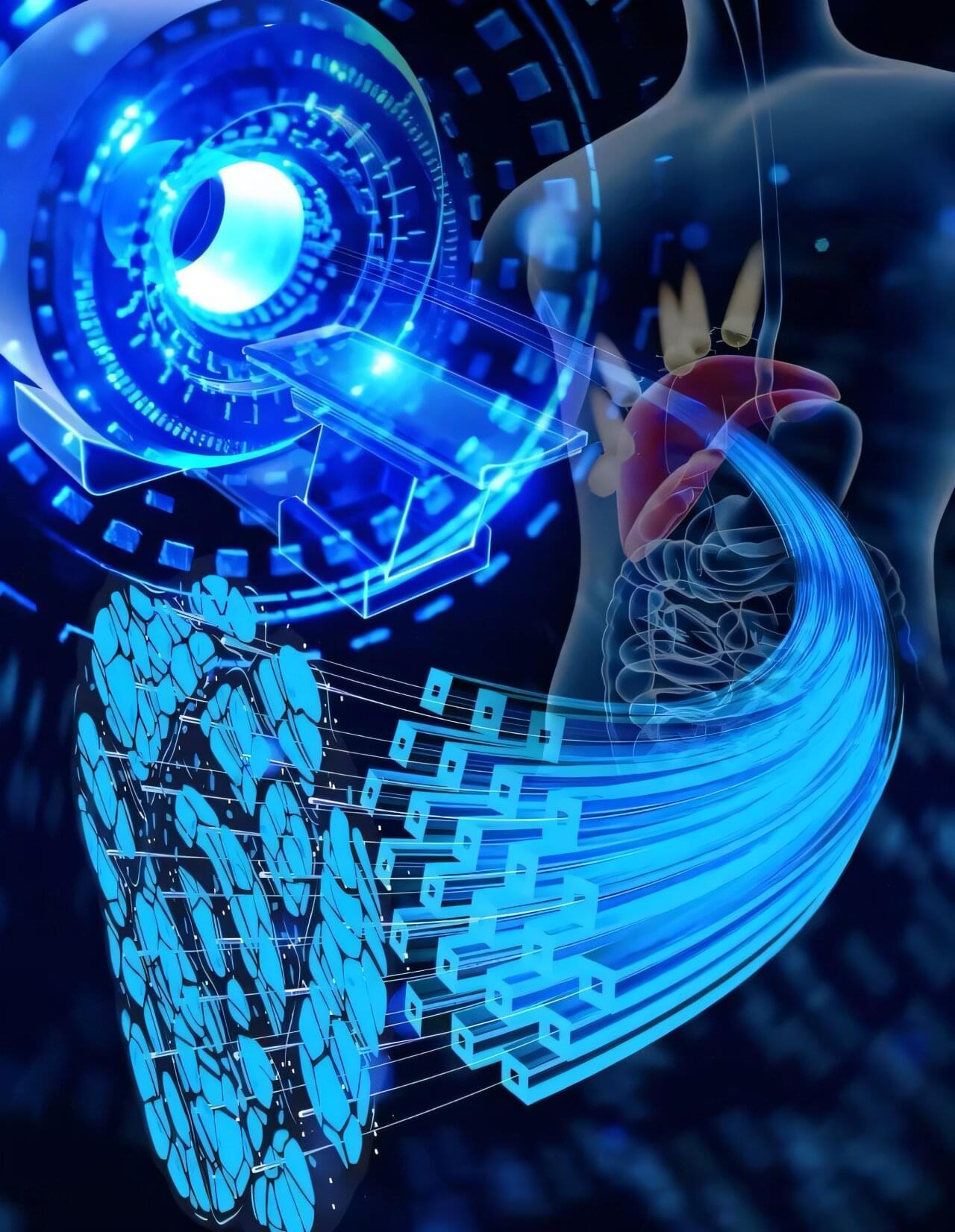
A research team has developed an innovative biomimetic dual-mode magnetic resonance imaging (MRI) nanoprobe for detecting early-stage liver fibrosis in non-alcoholic fatty liver disease (NAFLD).
The work, using the Steady High Magnetic Field Facility (SHMFF), was recently published in Advanced Science. The team was led by Prof. Wang Junfeng at the High Magnetic Field Laboratory, the Hefei Institutes of Physical Science of the Chinese Academy of Sciences.
NAFLD is a growing global health concern with even higher rates among individuals with obesity or type 2 diabetes. Detecting liver fibrosis early, before it becomes irreversible, is crucial for timely intervention and treatment. While MRI is a promising non-invasive tool for identifying liver fibrosis, traditional imaging techniques often lack the sensitivity to catch early-stage changes. Conventional contrast agents either face safety concerns or fail to target fibrotic tissues specifically.

Synchron has developed a Brain-Computer Interface that uses pre-existing technologies such as the stent and catheter to allow insertion into the brain without the need for open brain surgery.
Read the CNET article for more info:
You Might Not Need Open Brain Surgery to Get Mind Control https://cnet.co/3sZ7k67
0:00 Intro.
0:25 History of Brain Chip Implants.
0:44 About Synchron.
0:54 How Synchron implants the interface.
1:55 How brain patterns transmit signals.
2:50 Risks and Concerns.
3:50 Patients and Clinical Testing.
4:25 Brain Health Monitoring.
5:04 Synchron Switch Price.
Never miss a deal again! See CNET’s browser extension 👉 https://bit.ly/3lO7sOU
Check out CNET’s Amazon Storefront: https://www.amazon.com/shop/cnet?tag=lifeboatfound-20.
Follow us on TikTok: / cnetdotcom.
Follow us on Instagram: / cnet.
Follow us on Twitter: / cnet.
Like us on Facebook: / cnet.
#WhatTheFuture #Synchron #BCI
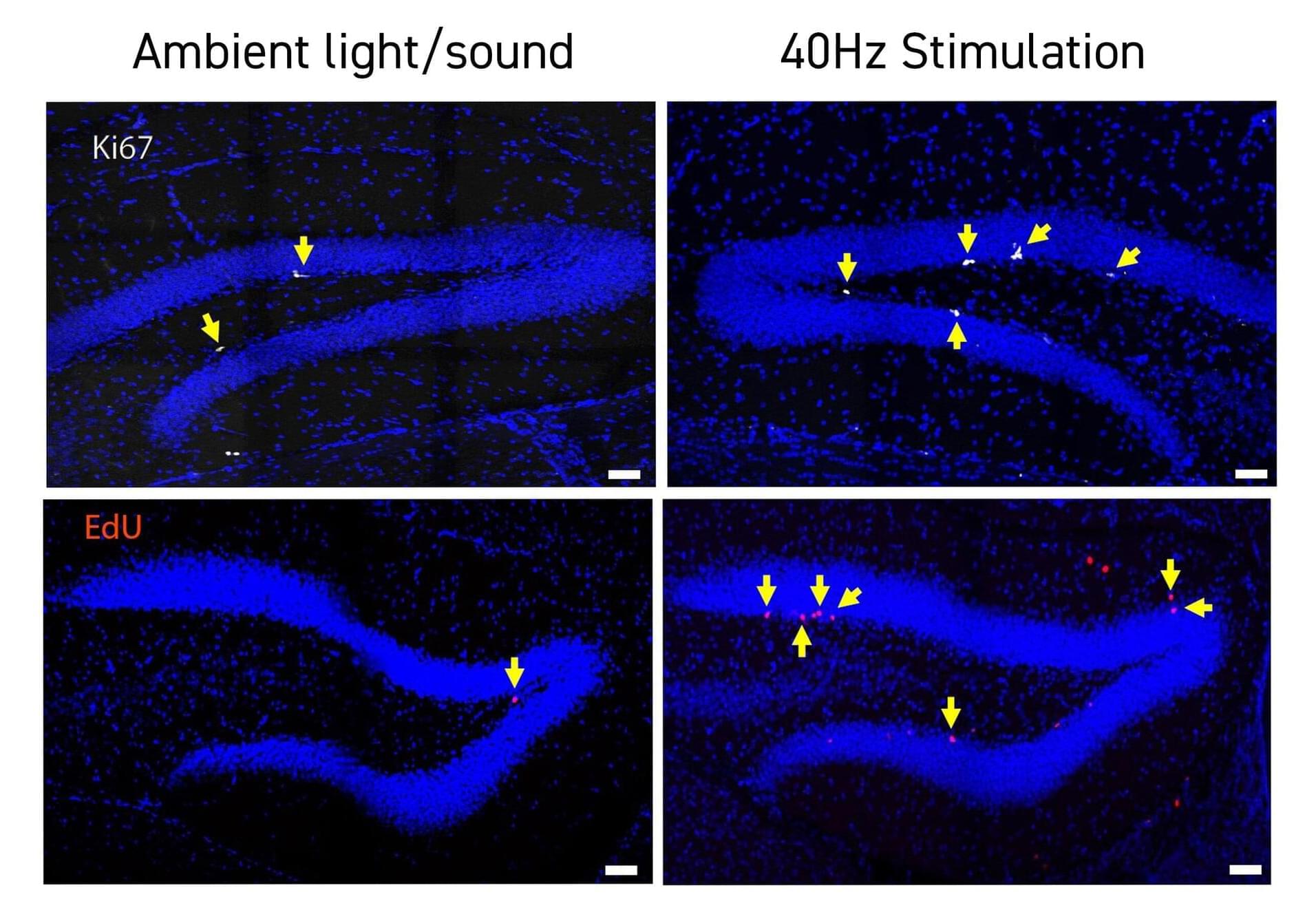
Studies by a growing number of labs have identified neurological health benefits from exposing human volunteers or animal models to light, sound and/or tactile stimulation at the brain’s “gamma” frequency rhythm of 40Hz. In the latest such research at The Picower Institute for Learning and Memory and Alana Down Syndrome Center at MIT, scientists found that 40Hz sensory stimulation improved cognition and circuit connectivity and encouraged the growth of new neurons in mice genetically engineered to model Down syndrome.
Li-Huei Tsai, Picower Professor at MIT and senior author of the new study in PLOS ONE, said that the results are encouraging but also cautioned that much more work is needed to test whether the method, called GENUS (for Gamma Entrainment Using Sensory Stimulation), could provide clinical benefits for people with Down syndrome. Her lab has begun a small study with human volunteers at MIT.
“While this work, for the first time, shows the beneficial effects of GENUS on Down syndrome using an imperfect mouse model, we need to be cautious as there is not yet data showing whether this also works in humans,” said Tsai, who directs The Picower Institute and The Alana Center, and is a member of MIT’s Brain and Cognitive Sciences faculty.
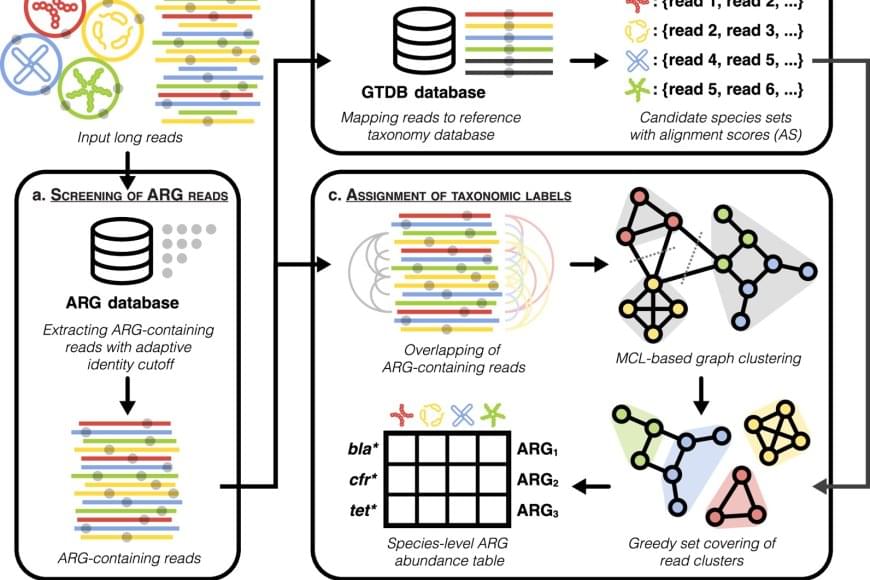
The global proliferation of antibiotic resistance genes (ARGs) poses a significant threat to the efficacy of antibiotic-based treatments for diseases. Effective monitoring of ARGs across both spatial and temporal dimensions is essential to understanding their transmission and implementing preventive measures.
A research team has developed a computational tool, Argo, designed to accurately track ARGs in environmental samples, providing insights into their dissemination and associated risks.
“Short-read sequencing method is currently used as a high-throughput DNA sequencing technique that generates large volumes of short DNA fragments, typically 150 base pairs. However, it often fails to provide information on the hosts of ARGs,” explained the senior author. “Without detailed host information, it becomes challenging to accurately assessing the risks of ARGs and tracing their transmission, hindering our understanding of their impact on human health and the environment.”

Karolinska Institutet researchers report that children born before 34 weeks of gestation show persistent deficits in cognitive abilities at ages 9 to 10. Impairments appear independent of socioeconomic status, genetic predisposition, and prenatal or child-specific risk factors. Lower scores were observed in vocabulary, working memory, episodic memory, and recall tasks. Children born late preterm (34–36 weeks) or early term (37–38 weeks) performed comparably to those born full term.
Preterm birth affects approximately 13 million infants worldwide each year and remains a leading cause of childhood morbidity and mortality. Although advances in perinatal care have increased survival, cognitive deficits in these children continue to present major public health concerns.
Critical brain development processes that occur between 24 and 40 weeks of gestation may be disrupted by premature birth. Prior research has mostly focused on extremely or very preterm infants, often overlooking those born moderately or late preterm, who constitute a large portion of preterm births.
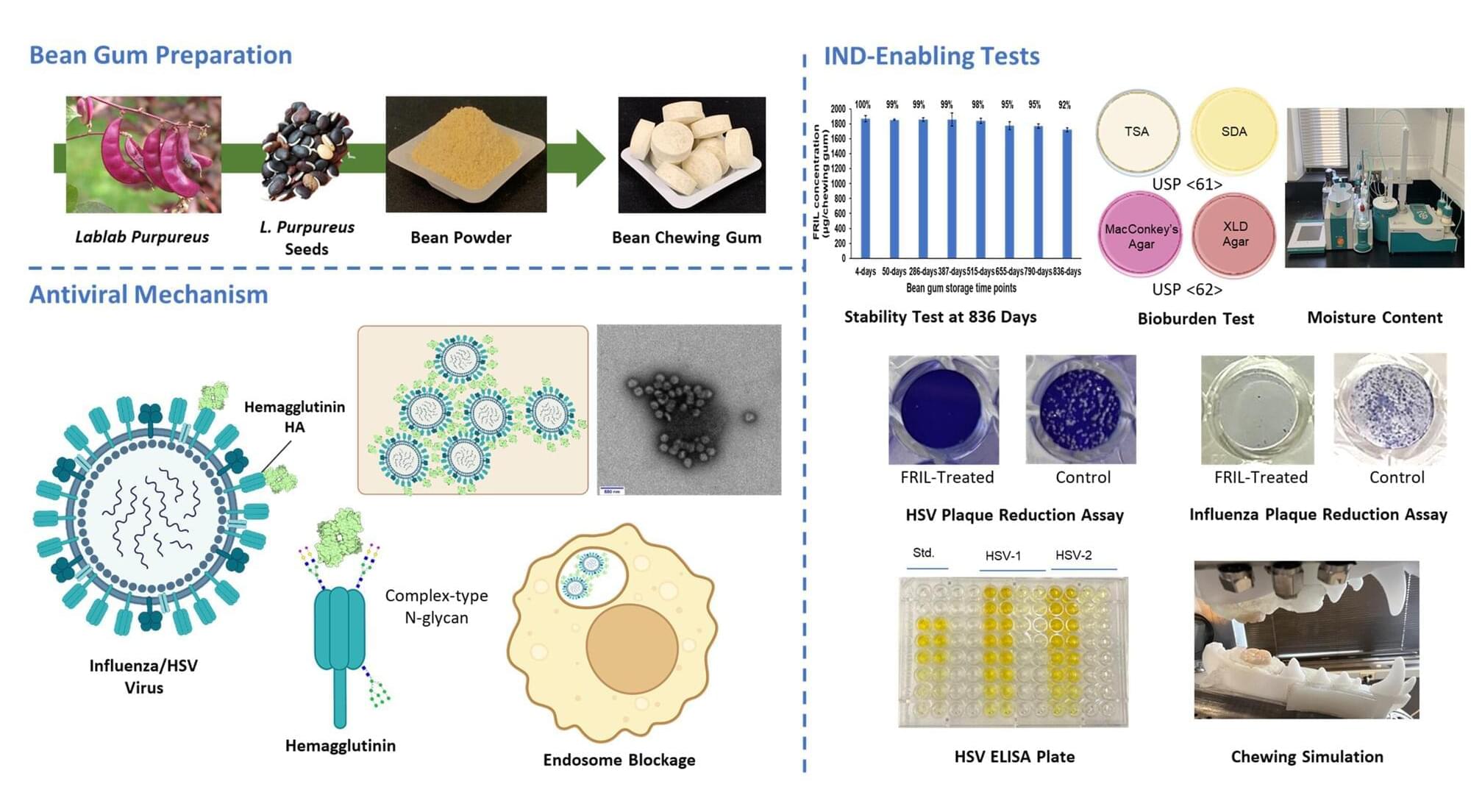
In today’s interconnected world, infectious diseases pose an escalating threat, as demonstrated by the coronavirus pandemic and outbreaks of H1N1, SARS, Ebola, Zika, and H5N1 (bird flu) viruses—all of which have had significant global health and economic impacts.
But more common viral diseases also contribute to global health challenges and economic costs. For example, seasonal influenza epidemics occur annually, causing a substantial global disease burden and economic losses exceeding $11.2 billion each year in the United States alone. Meanwhile, herpes simplex virus-1 (HSV-1), spread primarily through oral contact, infects over two-thirds of the global population and is the leading cause of infectious blindness in Western countries.
Low vaccination rates for influenza viruses and the lack of an HSV vaccine underscore the need for a new approach—one that targets reducing viral loads at the sites where transmission occurs. And for viruses like these, which are transmitted more efficiently through the mouth than the nose, this means focusing on the oral cavity.

Should you step away from the chicken wings?
For years, the conventional wisdom has been to swap out red meat for white meats like chicken and poultry to help reduce health risks like increased cholesterol, cancer, and inflammation —not to mention get a more budget-friendly protein source. But a new study links eating chicken and other poultry with a significantly increased risk of dying from gastrointestinal cancer and all other causes.
But before you put down the chicken—or roll your eyes and get back to your chicken Caesar—check out the details of the study, and what a dietitian says you should do if you’re concerned.
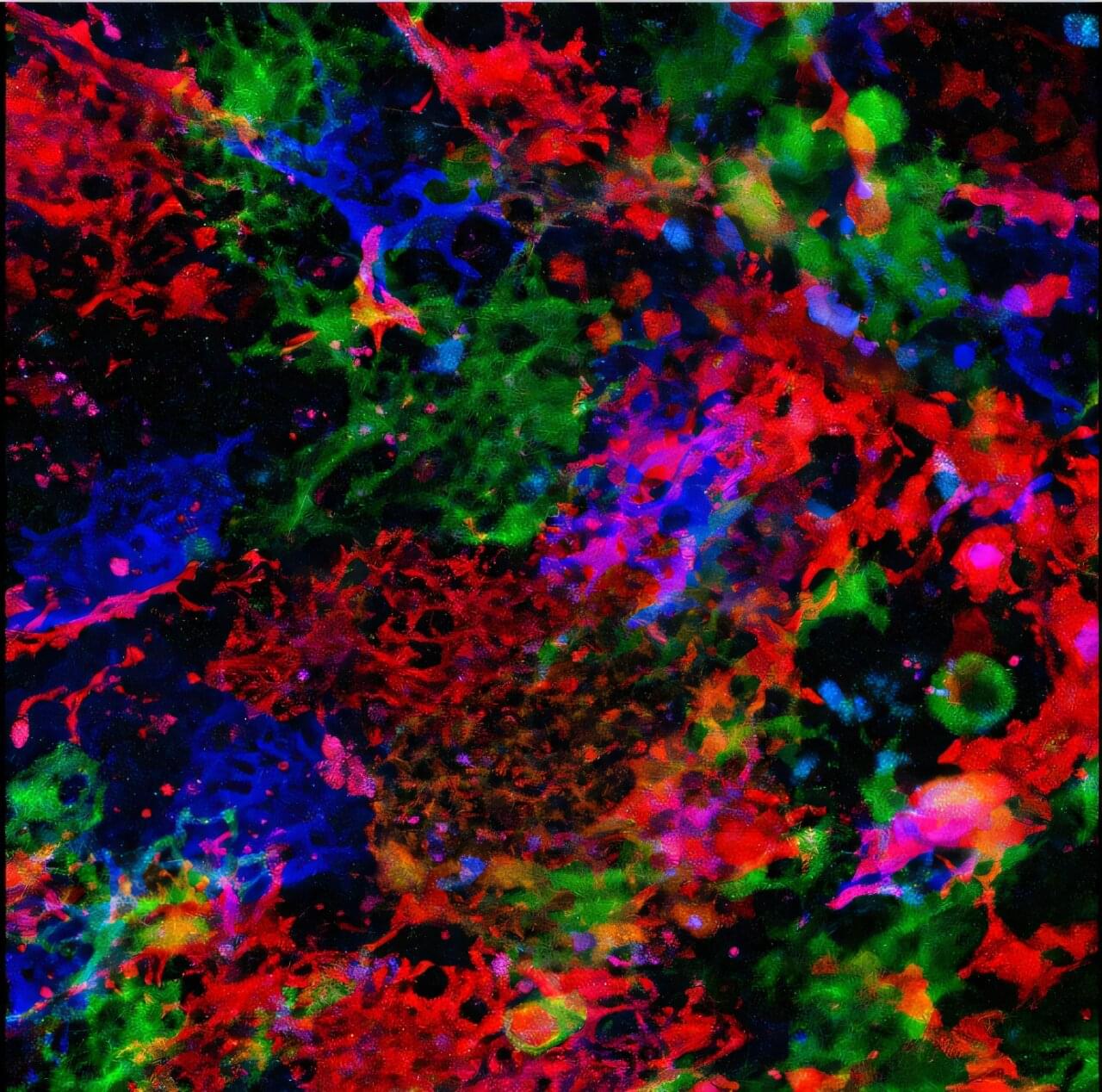
The thymus is a crucial training ground for T-cells, the body’s “white knights,” where they learn to battle the various diseases they may encounter. Thymic function shrinks to nearly nothing as we age, severely limiting our ability to recognize and defend against cellular infiltrators.
Scientists at the University of Texas Health Science Center at San Antonio (UT Health San Antonio) discovered a crucial pathway in the thymus that determines the rate of growth and functional preservation. Surprisingly, this pathway appears to act through both indirect and direct methods. Understanding these functions could help produce treatments that preserve thymic function for longer, boosting the immune system’s power to fight disease.
A UT Health San Antonio-led study, published in Nature Aging in February 2025, highlights the role of the peptide hormone fibroblast growth factor 21 (FGF21) in regulating T-cells and, potentially, preserving thymic size over time.